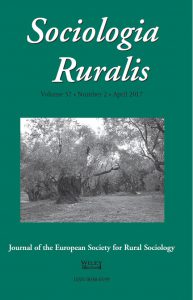An interview with Aydan Özoğuz, German Commissioner for Immigration, Refugees and Integration
Aydan Özoğuz has been the Minister of State and Federal Government Commissioner for Migration, Refugees, and Integration in Germany since December 2013. Speaking with Howard Duncan, editor-in-chief of policy oriented journal, International Migration, Aydan discusses Germany’s approach to immigration. This is a condensed version of a longer interview, which can be accessed here. Germany is the destination for the second largest number of migrants in the world, second only to the United States. Why has Germany taken in so many immigrants in recent years,...




















1468-0491/asset/society_affiliation_image.gif?v=1&s=859caf337f44d9bf73120debe8a7ad67751a0209)